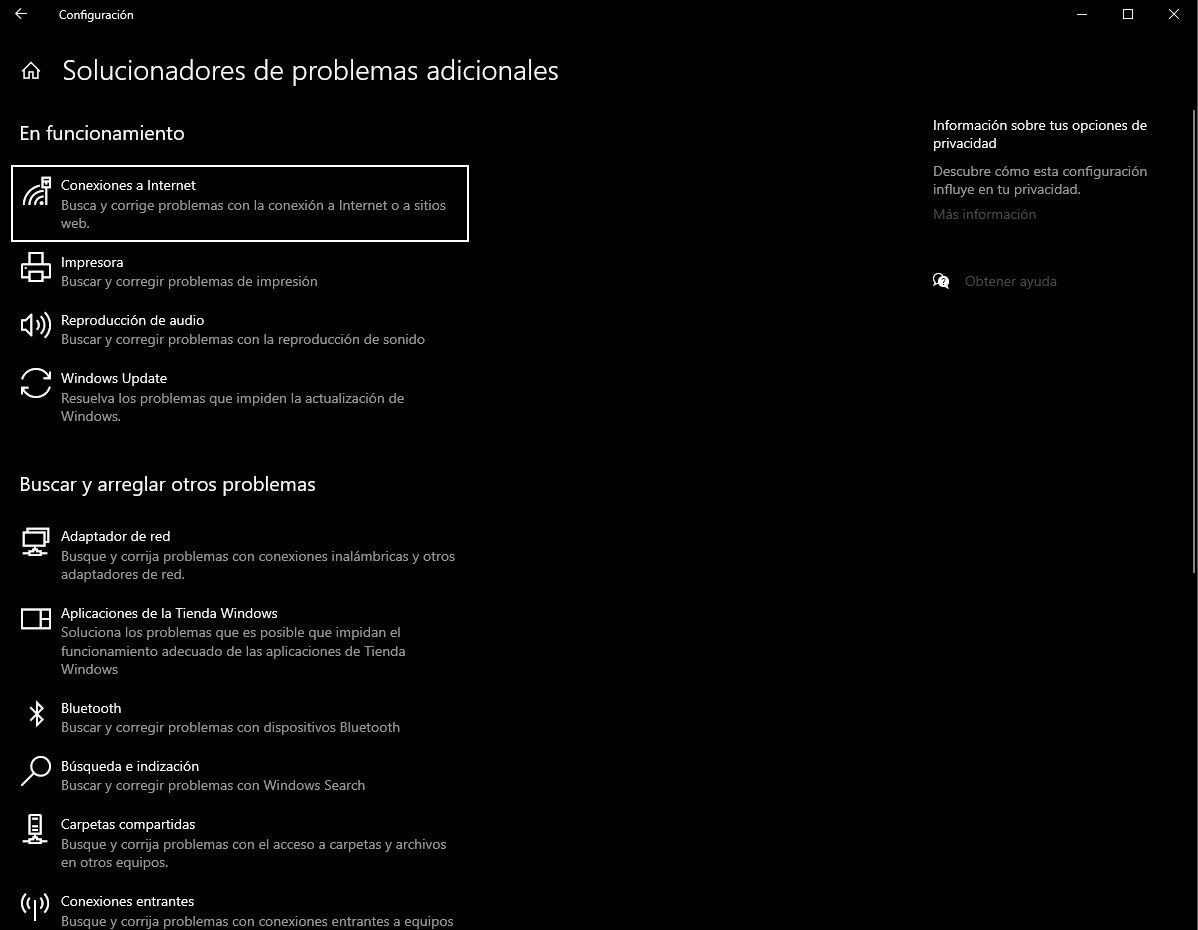Panos Panay, Microsoft’s product manager, even then assumed that Windows 12 would be an intelligent operating system. It is clear that with the huge evolution that artificial intelligence has undergone, with the possibilities that it offers and with the significant investment that Microsoft has made in ChatGPT, this is a natural step for the Redmond giant and at the same time one of the innovations that generated the most interest.
Last February, we devoted a special review to all the information we have so far about Windows 12. In it, we also mentioned the adoption of artificial intelligence as the engine that will take this new operating system to another level, but we don’t cover all the possibilities it might offer.
Because it’s a very interesting topic, that’s exactly what we’re going to do today, we’re going to talk about everything What Windows 12 can bring with artificial intelligenceand find out how it can profoundly change our user experience (for the better, of course). Keep in mind that everything we tell you below is an estimate and nothing is confirmed by Microsoft yet.
1.-Windows 12 could better manage workload and resources

And better adapt to the changes that occur to workload and system needs in real time. This would undoubtedly be one of the most interesting applications that Microsoft could build out of AI, integrating it as a resource that more accurately identifies each of the different workloads being performed and assigns them the specific resources they need accordingly.
This could be especially beneficial for specialized hardwareand also for processors that have different blocks of cores. For example, a smart Windows 12 system should be able to accurately allocate the workload to the P cores (high performance) or E cores (high efficiency) of the Intel Raptor Lake-S processor and should also be able to run smoothly. two Ryzen 9 7950X3D chiplets that assign the most dependent L3 cache tasks to the first CCD and the least dependent tasks to the second CCD.
Better load allocation is important, but so is proper resource management. Microsoft could use artificial intelligence to better identify what specific resources an app or game needs decide which ones you can and should freely assign to them. I’m sure the idea will remind you in part of Game Mode, and yes, that would be the basic idea, but of course it would be on a different level in terms of effectiveness.
It goes without saying that the value that all of this would bring in terms of performance, efficiency and optimization would be huge, and that it could push Windows 12 to a clear level of superiority compared to other existing operating systems. Still, it may and may be difficult for Microsoft to get to that level very high cost at the level of requirementsAlthough we will talk about this later.
2.-Security and intelligent protection: goodbye to third-party antiviruses?

In its current state, and with the built-in security solution it brings from home, Windows 11 is already a perfectly usable operating system. without having to resort to a third-party antivirus, we just need to have some common sense when using the device so we can “sleep soundly”.
Implementing a complete AI system could also enable a significant improvement in the level of security and protection of the operating system and the user in a broad sensethat is, applied both to the applications, games and general content of the user account, as well as to his personal data and other accounts he has and uses in Windows 12. By this I mean, for example, greater protection against the theft of accounts on social networks and other services.
Using artificial intelligence that can learn as you go and identify user idiosyncrasiesas well as your usage patterns and other important details, could also play a very important role in protecting you from various types of threats, helping to increase the security of Windows 12 and that it can adapt in real time to the challenges that arise. in terms of safety.
The application of artificial intelligence in safety and security is not new, and it could also help improve the performance and efficiency of malware scanning, reducing resource consumption, time required to complete a full scan and minimizing or even completely eliminating false positives.
3.-Intelligent management of applications and programs in the background

The implementation of AI in Windows 12 could enable better management of these apps and programs which are loaded at startup and remain in the backgroundand also those that open automatically to trigger updates at the worst possible moment. All of this is not only very annoying, but can also have a noticeable impact on your computer’s performance.
This artificial intelligence built into Windows 12 could be trained to identify apps that load at startup that we don’t need, as well as those that take time. consuming resources in the background without interacting with them. In these cases, AI could act it automatically disables the bootload for the former and closes the latterand prevent them from reopening or running an update if we are performing an important function in the foreground.
In order to carry out effective and adequate work in this regard, Windows 12 should always be fully aware of what we’re doing, but that wouldn’t be a problem because after all, you should be aware of it too in order to apply what we told you in point one. I understand that this may raise privacy concerns, but in theory we should have nothing to worry about, because even if Microsoft collects some data to improve AI and how Windows 12 works, it should be completely anonymous.
On the other hand, the artificial intelligence system could also be used offer a more personalized user experience and better adapted to each type of user, both in terms of the basics of Windows 12 and its main applications. I could give many examples, I can think of a typical user who prefers a dark theme, in which case the artificial intelligence of Windows 12 can automatically adapt applications and even the browser to display a dark background, or adjust the sound of various applications and tools, including games, adapt it to the user’s preferences, all in an automated way.
4.-Automatic solution of errors and problems more efficient and automatic

Windows 10 and Windows 11 already have a troubleshooter and the truth is that both do a good job when it comes to dealing with various bugs and errors, both software and hardware, but what we are considering here is something I would be on a higher level.
Windows 12 could have a smart debugger and troubleshooter that would not only be more efficient but also I could learn and improve as I wentwhich would make it work better and better and eventually solve more bugs.
The tool should also take advantage of AI to operate automatically, that is, it should be able to identify that certain failures or problems have occurred without user intervention, and ideally be able to resolve them automatically. If Microsoft achieves this with Windows 12, that could change an operating system that would never give you serious errors or problems that would require a system restore.
It would also be interesting if this tool could optimize the operating system and hardware in real time maintain a good level of performance. In this sense, automating tasks such as optimizing the storage unit, emptying the cache, releasing “hijacked” RAM (unnecessarily occupied) and cleaning the operating system registry would be some of the most important keys.
5.-Requirement level price: software mode and hardware mode?

It is obvious that the use of such advanced AI in Windows 12 would eventually have some cost at the level of requirementsand that Microsoft’s new operating system could thus be much more demanding than Windows 11. It makes sense, after all, everything we just said would involve the integration of an advanced artificial intelligence system that should rely on specific hardware function properly.
To avoid slowing down, jerking or even stopping when the AI kicks in, it would be ideal to have dedicated hardware. In this sense, Microsoft would have two great options: it could opt for accelerate Windows 12 AI via CPU or GPUbecause both GeForce RTX 20 and higher and Radeon RX 7000 have dedicated cores to accelerate inference, artificial intelligence and deep learning tasks.
We know that AMD has already integrated a neural processing unit into its next-generation Ryzen APUsand the latest rumors suggest that Intel might even integrate a dedicated AI unit into its Meteor Lake processors, so it’s clear that the weight of AI in the general consumer PC sector is only going to grow, and it’s all reinforcing. told you about this smart Windows 12 in this article.
However, Windows 12’s hardware-accelerated AI system would severely limit support and compatibility, and make Windows 12 an operating system. something too exclusive and far from the common user. That’s why I think Microsoft should eventually go for two of the two approaches I mentioned in the title, software-level support and hardware-level support.
In the first mode, Windows 12 AI it will work at the software level, without acceleration specialized in hardware. By working this way its potential could be reducedand resource consumption can be high. In hardware mode we should CPU or GPU based accelerationand in this case, the AI system of the said operating system could develop its full potential and the overall performance of the device would be perfect.


















